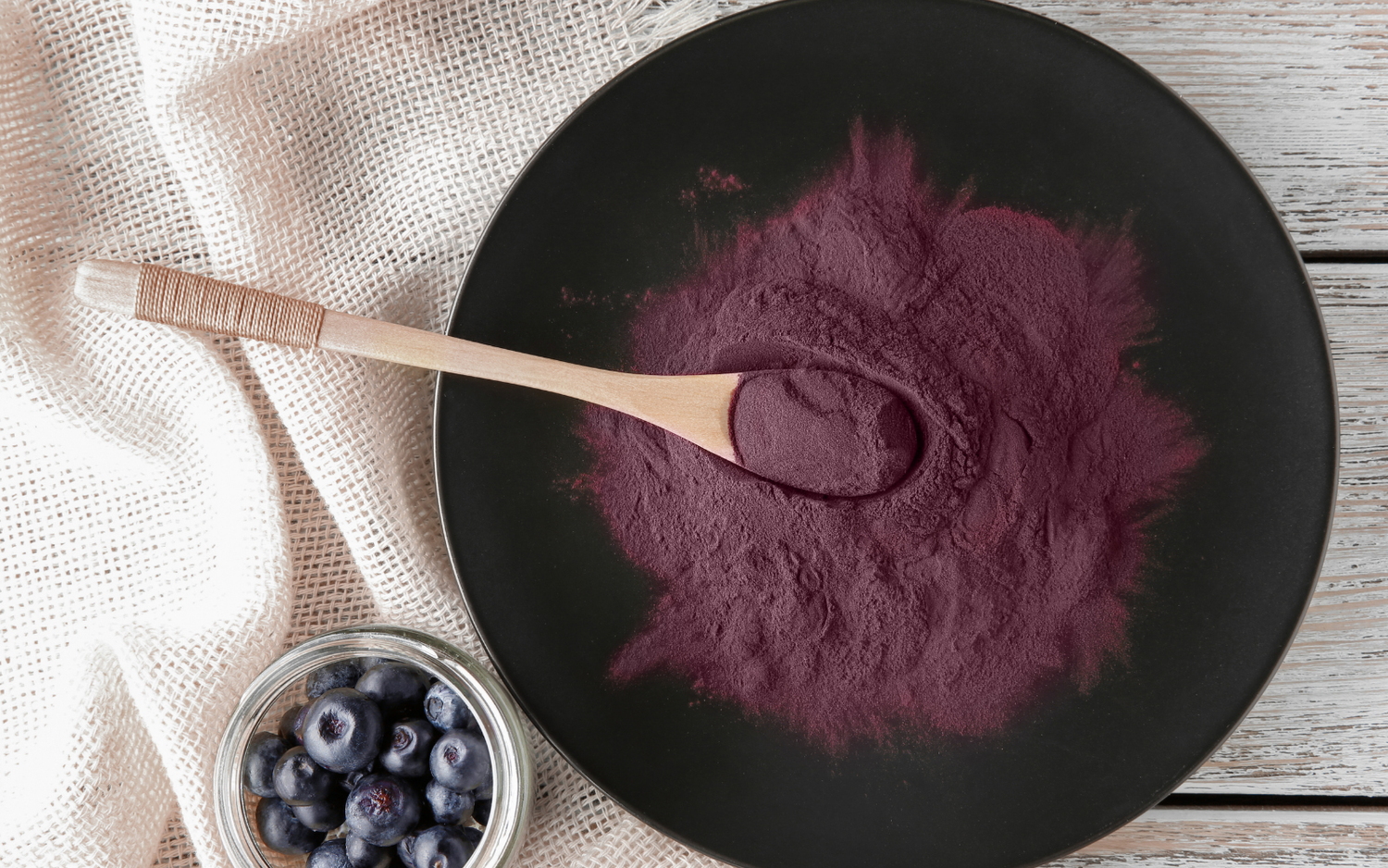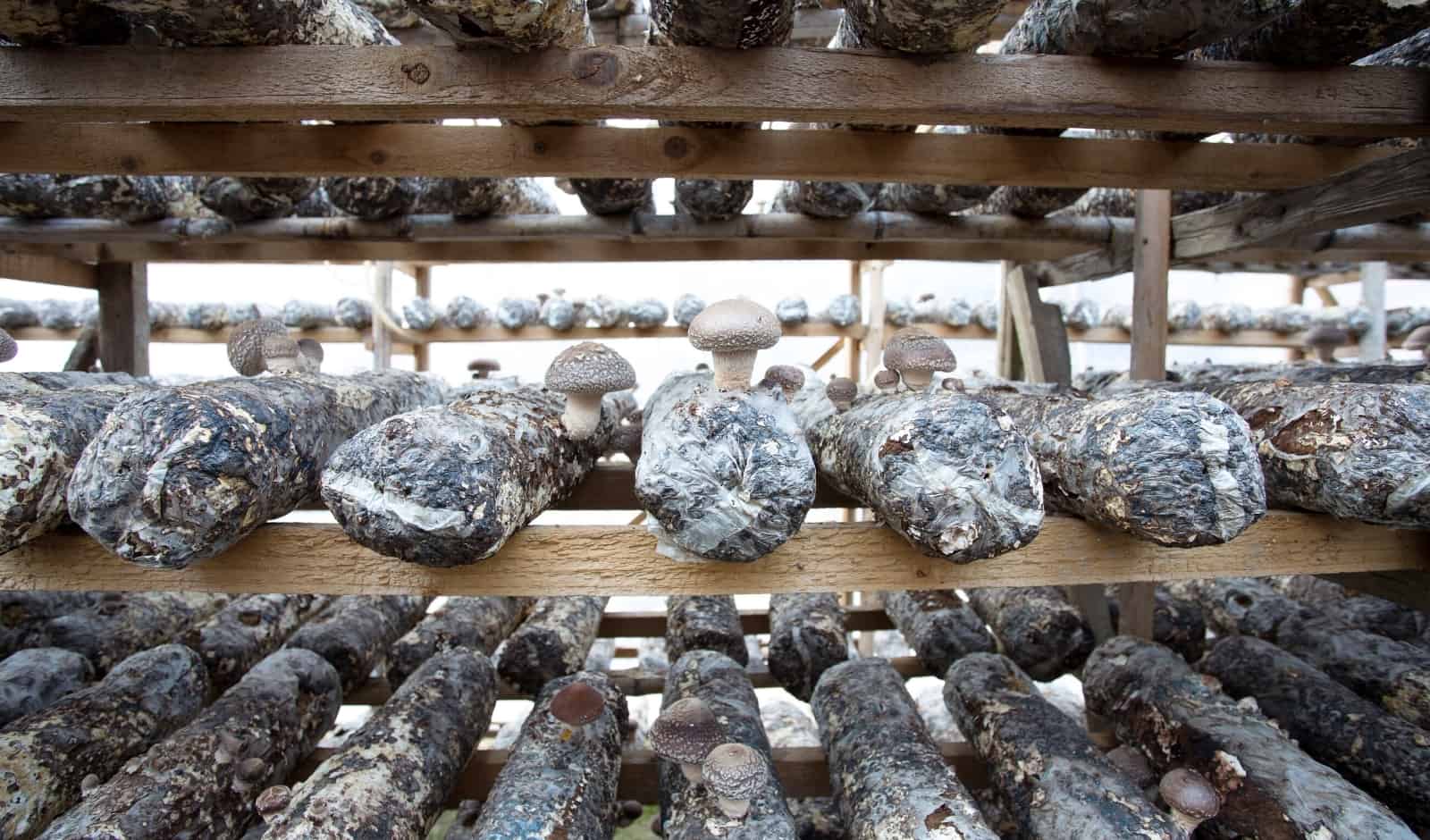If there's one fruit that has taken the spotlight in recent years, it's the acai berry. Perhaps more than any other fruit, this tiny berry from the Amazon rainforest is synonymous with the term "superfruit." And for good reason, too.
Research has shown that acai is packed with antioxidants and anti-inflammatory polyphenols that can potentially bolster the immune system and lower the risk of many diseases. But before you start gobbling up acai berries like there's no tomorrow, find out what you need to know about its various forms, possible pitfalls, and how it might benefit your health.
What are Acai Berries?
Pronounced "ah-sigh-ee," acai berries are the tiny, round, reddish-purple fruit that comes from the acai palm tree (scientific name: Euterpe oleracea) of Central and South America. With an appearance similar to a blueberry or purple grape, the acai has a seed that comprises about 80% of the berry, while the rest is pulp and skin. Although exact amounts can vary depending on how these Amazonian berries are prepared and whether or not they've been deseeded, 100 grams (3.5 ounces) of acai berries has about 75 calories, 6.3 grams of fat, a little over one gram of protein, and 3.8 grams of dietary fiber, which is 15% of the daily recommended value. (1) Acai berries also have a good amount of vitamin C and potassium as well as vitamins A and E, iron, zinc, calcium, and copper. What's more, acai has rich antioxidant properties thanks to its assortment of polyphenols, tannins, and anthocyanins, which is a type of flavonoid that gives red, purple, and blue plants their color. (2)Health Benefits Of Acai Berry
Acai berries have been touted as a cure-all for everything from arthritis and weight loss to erectile dysfunction and anti-aging skin, but the truth is that there isn't nearly enough scientific research to substantiate these claims. Below are some of the potential health benefits of acai berryHeart Health
Acai berries are rich in anthocyanins, which have been linked to helping cardiovascular diseases. Studies have found that berries such as acai are an important fruit group in a heart-healthy diet due to their compounds and nutrients (including anthocyanins, flavonols, vitamins, and fiber) that can reduce the risk of heart disease. (3) Furthermore, one study in 2013 found that anthocyanins reduced the risk of heart attack in young and middle-aged women by 32 percent. (4)Full of Antioxidants
As we know, antioxidants help bolster your immune system and defend cells from damage caused by free radicals, which are linked to oxidative stress, sickness, and disease. A 2008 study on healthy volunteers found that acai raised antioxidant levels, with acai pulp being a better source of antioxidants than acai juice. (5) A six-week study in 2015 examined whether regular consumption of an acai berry-based juice blend would affect performance and improve blood antioxidant in junior athletes. While the acai berry-based juice blend had no effect on sprint performance, it increased total antioxidant capacity, reduced exercise-induced muscle damage, and substantially improved lipid profile, including cholesterol levels. (6)Fights Inflammation
Because of their high antioxidant content, acai berries are thought to reduce inflammation in the body. In a 2011 study, researchers extracted the flavonoid known as velutin from the acai pulp to examine its effects on cells. They discovered that velutin is a potent anti-inflammatory compound that effectively inhibited inflammatory cytokines. (7) However, a 2016 study on mice with digestive system conditions similar to that of H.pylori suggests that acai berry did not exhibit strong anti-inflammatory and anti-tumor effects. (8)Can Improve Cholesterol Levels
In 2011, a study on overweight adults found that eating acai smoothies twice daily for a month resulted in lower total cholesterol levels including LDL cholesterol (aka "bad cholesterol"). That said, there was no control group in the study so results could not be conclusive. (9) On the other hand, various studies suggest that anthocyanins—such as those in acai—have a positive effect on HDL and LDL cholesterol. (10)How To Eat An Acai Berry
With a taste that's been described as a mix of chocolate and berries punctuated by a metallic aftertaste, acai berries no doubt have a distinct flavor. One of the most popular ways to eat acai berries is in an acai bowl. To do this, simply blend frozen acai purée or acai powder with water or whatever non-dairy milk you prefer to create a smoothie-like consistency. Place the mixture in a bowl and top with fruit, granola, oatmeal, nuts, nut butter, coconut flakes, chia seeds, hemp seeds...you get the idea. You can also mix acai in your favorite smoothie recipe and finish with your favorite toppings.
Acai Juice vs Acai Berry Powder vs Acai Fruit
While you can find acai berry as a supplement in pill and powder form, the three most popular methods to consume it is raw, puréed, or as juice. Fresh acai berries are low in sugar and have the dietary fiber, healthy fats, and nutrients you want, but the tangy-bitter taste might be off-putting for some. Try adding it to smoothies to mask the flavor or use the purée form. Acai juice is often mixed with other fruit juices to give it a more palatable flavor, but beware that juice has the highest sugar content and lacks the fiber you get from eating fresh acai. What's more, filtered acai juice might have fewer antioxidants (6). Acai powder, which is made from freeze-dried acai, delivers concentrated amounts of nutrients and antioxidants as well as fiber. However, the medical jury is still out as to whether it's the most nutritious form of consuming acai berries.
Acai Bowls
You might've thought that acai bowls have already had their heyday, but one scroll through Instagram and it's clear that acai bowls are still going strong. They might make for incredible eye candy, but are they healthy? Not exactly. Acai bowls are almost always combined with other fruit and sweeteners that can send sugar levels skyrocketing. Don't believe it? Acai bowls may contain more than 50 grams of sugar—the same as 12 teaspoons—which is twice the daily amount recommended by the American Heart Association. (11) Many nutritionists and doctors assert that acai bowls should be considered an occasional treat, perhaps a replacement for ice cream, rather than a regular meal.What to Watch Out For
When it comes to acai berry products, make sure to read the labels to avoid added sugars and other fillers. If you feel like treating yourself to a pretty-as-a-picture acai bowl, use unsweetened purée and mix it with water instead of fruit juice. Also, consider mixing it in a smoothie with leafy greens rather than fructose-laden fruit. You should also be wary of acai berry supplements that are marketed as weight loss supplements since there is no conclusive evidence that acai alone promotes rapid weight loss. (12) As a matter of fact, the Federal Trade Commission has taken action against companies that have sold acai weight loss products in allegedly deceptive ways.Potential Side Effects
Acai is safe when eaten in moderation, but if you have pollen allergies or are sensitive to berries, you may want to avoid it. Also, if you're pregnant, breast-feeding, or taking medication, be sure to talk to your doctor to sidestep any potential interactions. You should also let your doctor know that you've been eating acai berries if you're scheduled to have an MRI as large doses of acai could affect test results.


![How To Focus and Get More Done [7 Smart Tips]](http://freshcap.com/cdn/shop/articles/how-to-focus_265e7f15-d172-4050-a617-9dcb4ddb036e.png?v=1740071395&width=1600)